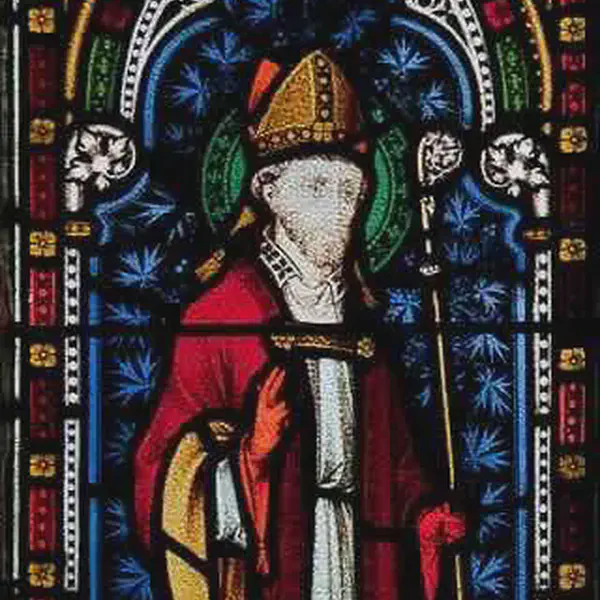
Laurence O'Toole Is Canonized by Pope Honorius III
December 11, 1225
Lorcán Ua Tuathail, known in English as Laurence O’Toole and in French as Laurent d’Eu (1128 – 14 November 1180), was Archbishop of Dublin at the time of the Norman invasion of Ireland. Lorcán played a prominent role in the Irish Church Reform Movement of the 12th century and mediated between the parties during and after the invasion. He was canonised in 1225 by Pope Honorius III.
Early Life and Ecclesiastical Career
Laurence O’Toole was born into a noble family at Kilkea, County Kildare, Ireland, the youngest of four sons of King Muirchertach Ua Tuathail of the Uí Muiredaig, a branch of the Uí Dúnlainge dynasty.
His mother was an O’Byrne princess of the Uí Fáelán branch of the Uí Dúnlainge. The Uí Tuathail (O’Toole) take their surname from their ancestor Tuathal mac Augaire, King of Leinster, who died in 958. They resided at Maistiu (Mullaghmast) in what is now County Kildare.
He entered the monastic life and became a monk at Glendalough, an important monastic settlement in Ireland. He later served as Abbot of Glendalough and, eventually, as Archbishop of Dublin.
Archbishop of Dublin
When he was 32, following the death of Archbishop Gregory in 1162, he was elected unanimously Archbishop of Dublin at the Synod of Clane, and was consecrated in by Gelasius, Archbishop of Armagh and successor of Máel Máedóc.
He was the first Irishman to be appointed to the See of this town then ruled by Danes and Norwegians; it is notable that his nomination was backed not only by the High King Ruaidrí Ua Conchobair (Rory O’Connor), King Diarmait Mac Murchada (who had by then been married to Lorcán’s sister, Mór); and the community at Glendalough, but also by the clergy and population of Dublin itself. He played a prominent part in the Irish Church Reform Movement of the 12th century, as well as rebuilding several parish churches and emphasising the use of Gregorian chant.
Role in Church and Diplomacy
Saint Laurence O’Toole played a significant role in ecclesiastical affairs in Ireland. He was known for his efforts to reform and discipline the clergy. He also engaged in diplomatic activities, mediating between Irish kings and working to bring about peace.
Canonization
Due to the claimed great number of miracles that rapidly occurred either at his tomb or through his intercession, Lorcán was canonised by Pope Honorius III only 45 years after his death.
Early devotees of Lorcán compared him with his martyred contemporary Thomas Becket, as a man who had suffered physical attacks while defending the independence of the church and his people from oppression, and who had held out the threat of divine curse or excommunication against the church’s oppressors.
Feast Day
Saint Laurence O’Toole’s feast day is celebrated on November 14th each year in the Catholic Church.
Legacy
Saint Laurence O’Toole is venerated as one of Ireland’s medieval saints, known for his piety, dedication to the Church, and contributions to peace and diplomacy.
The canonization of Saint Laurence O’Toole reflects the recognition of his holiness and the impact of his life and work within the Catholic Church.